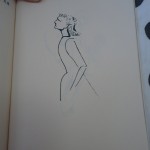“English is what saved us,” an Irish workmate told me recently of his economically troubled homeland. “Our young people can go abroad and work because of English, if it wasn’t for that there would be riots on the streets of Dublin.”
Speaking English is of massive benefit when looking for a job, travelling and communicating all over the world. Despite the troubled global economy there is a huge demand for English teachers from Seville to X’ian and businesses from Stockholm to Shanghai communicate in the global language. My job in China is largely thanks to my mother tongue.
But what if you only speak English?
In a speech to the Queensland Tourism Industry Council this week, former Australian Prime Minister Kevin Rudd urged Australians to learn Mandarin. “It seems the times are upon us,” he warned.
Rudd suggested the Australian Broadcasting Corporation needed to turn their focus to Asia (couldn’t agree more – Australian media is hopelessly Euro focused), and tourism operators need to learn Mandarin and start writing signs in Chinese. It’s pretty minor stuff, but it’s a start.


![the-count[1]](https://149355684.v2.pressablecdn.com/wp-content/uploads/2012/09/the-count11-150x150.jpg)








